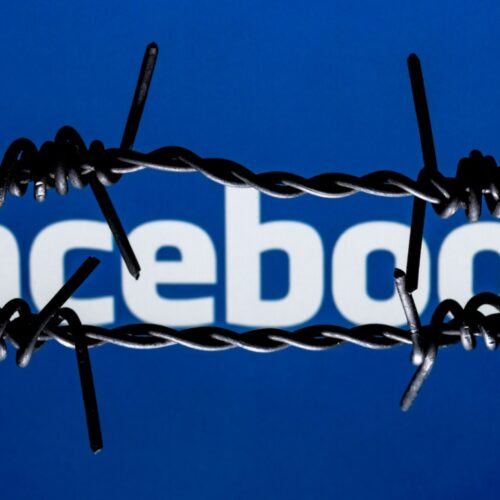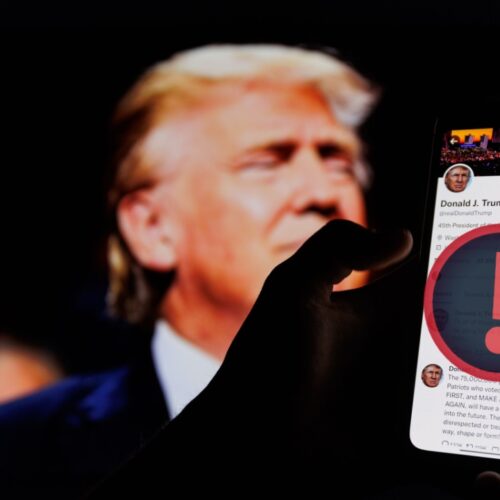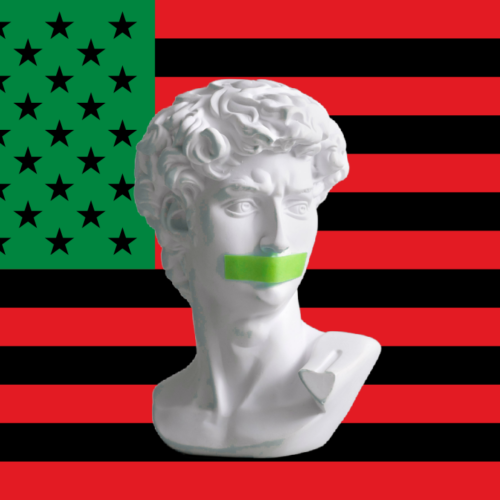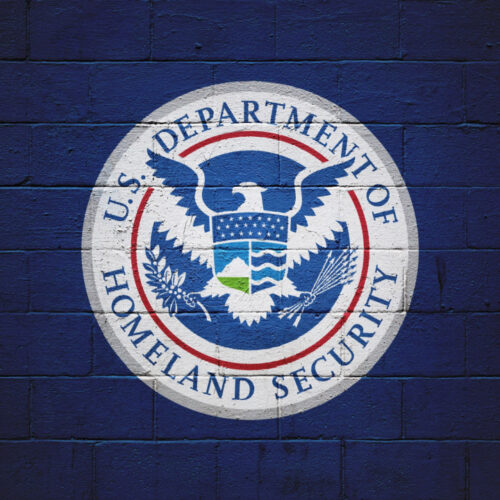Ending Free Speech
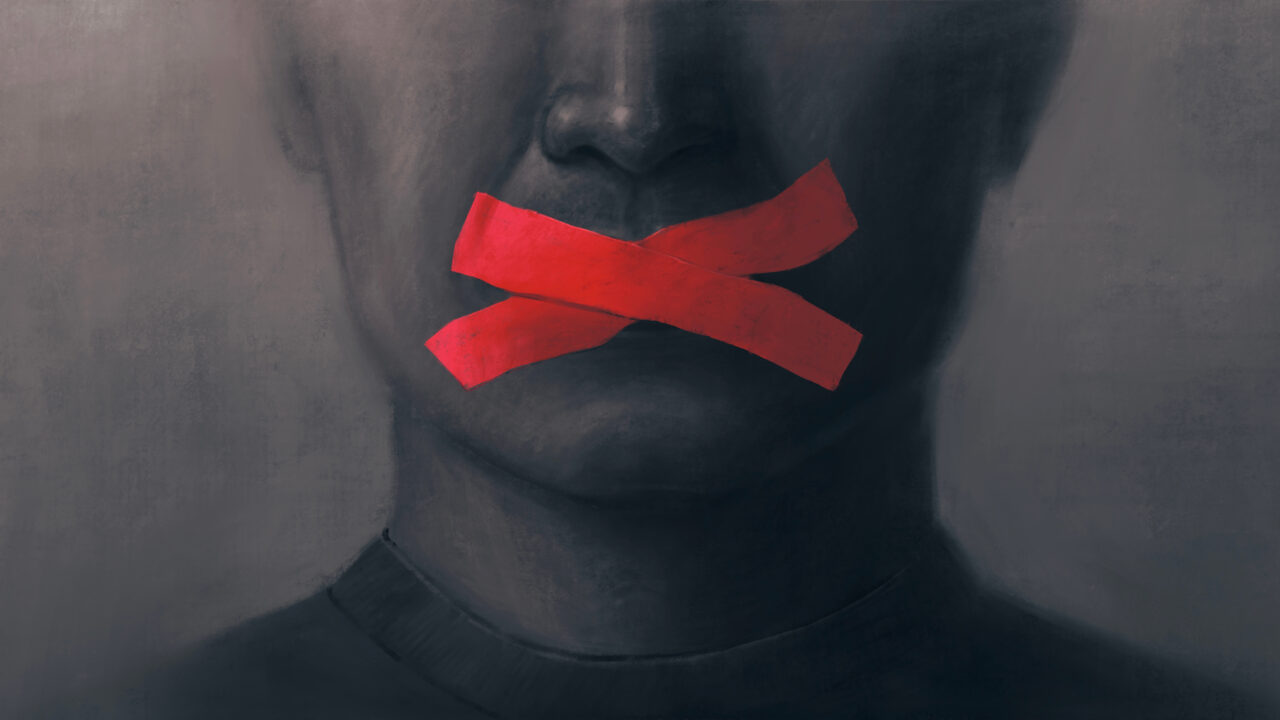
The Left seeks to delegitimize any executive, journalist, academic, public official, or court that does not support its agenda. And they are succeeding.
Editor’s Note – This essay was originally published at American Mind on July 14th, 2023.
On Independence Day, Federal District Court Judge Terry A. Doughty issued a preliminary injunction in Missouri v. Biden that blocks the White House and numerous federal agencies from communicating with social media companies for “the purpose of urging, encouraging, pressuring, or inducing in any manner the removal, deletion, suppression, or reduction of content containing protected free speech.” The Government filed a Notice of Appeal, and requested a stay on enforcement of the injunction until its appeal is decided. Doughty denied the stay, though he nominally clarified the injunction’s scope. The Government then filed for an emergency stay with the Fifth Circuit Court of Appeals. That motion is pending.
The howls of despair from the Biden Administration and its allies on the Left mark an inflection point on whether the United States remains the bastion of free speech, or transitions to a European model that restricts speech to that which the elites consider acceptable.
As I describe here, the Louisiana and Missouri attorneys general, and health-care professionals, filed a complaint offering compelling evidence that the Biden administration is orchestrating a government-wide enterprise to censor, demonetize, and suppress criticism of political views with which it disagrees on subjects such as Covid-19, elections, the Hunter Biden laptop, climate change, and the economy, among others.
In a fact-intensive 155 page ruling, Doughty found that it is likely the plaintiffs will establish that dozens of federal officials, as well as the White House, Justice Department, State Department, Department of Health and Human Services, FBI, Surgeon General, Centers for Disease Control and Prevention (“CDC”), National Institute of Allergy and Infectious Diseases (“NIAID”), Census Bureau, Cybersecurity and Infrastructure Security Agency (CISA), an agency within the Department of Homeland Security, and other federal agencies had coerced, significantly encouraged and/or jointly participated with social media companies to suppress free speech by American citizens, and to compel publication of their preferred narrative.
To prevail on a preliminary injunction, a plaintiff must establish: (1) the substantial likelihood of success on the merits; (2) that he is likely to suffer irreparable harm in the absence of an injunction; (3) that the balance of equities tips in his favor; and (4) that an injunction is in the public interest. Doughty found that plaintiffs met this burden, and rejected the Government’s argument that its interest in “being able to report misinformation and warn social-media companies of foreign actors’ misinformation campaigns outweighs the plaintiffs’ interest in the right of free speech,” and its effort to “blame the Russians, Covid-19, and capitalism for any suppression of free speech by social-media companies.”
The ruling observes: “The right of free speech is a fundamental constitutional right that is vital to the freedom of our nation, and plaintiffs have produced evidence of a massive effort by defendants, from the White House to federal agencies, to suppress speech based on its content. Defendants’ alleged suppression has potentially resulted in millions of free speech violations.”
Citing the Supreme Court’s decision in Red Lion Broadcasting Co. v. F.C.C. (1969), Doughty wrote, “Although the censorship alleged in this case almost exclusively targeted conservative speech, the issues raised herein go beyond party lines. The right to free speech is not a member of any political party and does not hold any political ideology. It is the purpose of the Free Speech Clause of the First Amendment to preserve an uninhibited marketplace of ideas in which truth will ultimately prevail, rather than to countenance monopolization of the market, whether it be by government itself or private licensee.”
The outcome of most lawsuits depends on three factors: (1) the legal principles, which may be settled, ambiguous, or shifting; (2) the facts, which may largely be agreed by the litigants, or in dispute; and (3) the application of the law to the dispute.
In this case, the nearly unbridled right of free speech is well-settled law with a consensus of conservative and liberal Supreme Court panels. Plaintiffs provided thousands of emails and other documents, records of speeches, press conferences, and interviews given by Government officials, and deposition testimony under oath authorized by the Court (over the Government’s objection). The Government did not dispute the accuracy of that record.
The dispute, then, is about the application of the law to the facts. Though it also posited other defenses, the Government’s arguments largely fell into two categories. First, that its interaction with social media companies did not rise to the level of coercive activity required to constitute action by the Government. Second, that its purpose was to protect the public by stopping mis-, dis-, and mal-information, and that this motive immunized its activities. In making the latter argument, the administration is claiming that free speech is subordinate to Government policy.
In April 2022, CISA published the following definitions: “misinformation” is false, but not created or shared with the intention of causing harm; “disinformation” is deliberately created to mislead, harm, or manipulate a person, social group, organization, or country; and “malinformation” is based on fact, but used out of context to mislead, harm, or manipulate. It would be unprecedented for an American court to permit the Government to censor political debate the Government acknowledges is accurate because of its “context.”
Nonetheless, progressives have coalesced around the position that the First Amendment must not be absolute, and views they believe to be mean, racist, anti-science, or otherwise contrary to elite liberal orthodoxy, must be suppressed to protect gullible and sensitive people. To attack plaintiffs and Doughty’s rulings in the Missouri case, the administration and other Leftists mischaracterize well settled First Amendment law, the uncontested facts in this case, the breadth of the subject matter suppressed by the administration, and the terms of the injunction.
The Government’s stay motions and most analysis ignores the eight exceptions in the injunction, including, informing social media companies of criminal activity, national security threats, criminal efforts to suppress voting, foreign attempts to influence elections, threats to public safety or security, and malicious cyber activity; Government’s exercise of permissible public government speech; and deleting or removing posts that are not protected by the First Amendment. Some conservatives are concerned the exceptions are too broad, particularly for public safety, a justification used by advocates of the censorship effort.
The Left is demanding a new exception to the First Amendment for speech they believe to be a danger to the physical, emotional, spiritual, or financial well-being of Americans, as they define it. At its core, the Government’s massive censorship enterprise and its defense are an effort to gut one of our bedrock principles, and thereby move us closer to cultural Marxism.
The Meaning of the Free Speech Clause of the First Amendment
The Free Speech Clause of the First Amendment states: “Congress shall make no law… abridging the freedom of speech, or of the press.” The Supreme Court has long held that this prohibition applies also to actions by the Executive Branch.
The Supreme Court explained in W. Va. State Bd. of Educ. v. Barnette (1943) that “If there is any fixed star in our constitutional constellation, it is that no official, high or petty, can prescribe what shall be orthodox in politics, nationalism, religion, or other matters of opinion.” In Ashcroft v. ACLU (2002), the Court declared that with few exceptions, “the First Amendment means that government has no power to restrict expression because of its message, its ideas, its subject matter, or its content.”
Labeling speech as “misinformation” does not strip it of protection. In United States v. Alvarez (2012), Justice Anthony Kennedy explained that in applying the First Amendment, the Court had rejected an ad hoc balancing of social costs and benefits. He summarized the limited exceptions: advocacy intended and likely to incite imminent lawless action, obscenity, defamation, speech integral to criminal conduct, so-called fighting words, child pornography, fraud, and—subject to a particularly high bar—speech presenting a grave and imminent threat the government can prevent.
It is only this last exception that remotely could be argued to support even a portion of the Government’s censorship; but that is very unlikely. Justice Kennedy’s observed in Alvarez: “Absent from those few categories where the law allows content-based regulation of speech is…false statements….[S]ome false statements are inevitable if there is to be an open and vigorous expression of views….Our constitutional tradition stands against the idea that we need Oceania’s Ministry of Truth.”
Justice Kennedy further opined: “Were the Court to hold that the interest in truthful discourse alone is sufficient to sustain a ban on speech … it would give government a broad censorial power unprecedented in this Court’s cases or in our constitutional tradition. The mere potential for the exercise of that power casts a chill, a chill the First Amendment cannot permit if free speech, thought, and discourse are to remain a foundation of our freedom….The response to the unreasoned is the rational; to the uninformed, the enlightened; to the straightout lie, the simple truth…Society has the right and civic duty to engage in open, dynamic, rational discourse. These ends are not well served when the government seeks to orchestrate public discussion through content-based mandates.”
In Matal v. Tam (2016), Justice Kennedy wrote on behalf of four Justices who concurred in the Court’s unanimous decision: “A law found to discriminate based on viewpoint is an egregious form of content discrimination, which is presumptively unconstitutional. A law that can be directed against speech found offensive to some portion of the public can be turned against minority and dissenting views to the detriment of all. The First Amendment does not entrust that power to the government’s benevolence. Instead, our reliance must be on the substantial safeguards of free and open discussion in a democratic society.”
Government officials testified during depositions in this case that they knowingly sought to end-run the prohibitions on Government interference in free speech by working with and through third parties, including Stanford University, non-profit associations, and social media companies. This legally meaningless slight-of-hand is evidence of culpability.
When the Government strongly involves itself in a private party’s conduct, it cannot claim the conduct occurred as a result of private choice, even if the private party would have acted independently. Peterson v. City of Greenville (1963). Further, as Chief Justice Warren Burger wrote in Norwood v. Harrison (1973), the Government “may not induce, encourage, or promote private persons to accomplish what it is constitutionally forbidden to accomplish.” In his concurring opinion in Biden v. Knight First Amendment Institute at Columbia Univ. (2021), Justice Clarence Thomas summarized: “The government cannot accomplish through threats of adverse government action what the Constitution prohibits it from doing directly.”
Citing the Supreme Court’s decisions in Curtis Pub. Co. v. Butts (1967) and Texas v. Johnson (1989), Doughty fairly summarized: “The principal function of free speech under the United States’ system of government is to invite dispute; it may indeed best serve its high purpose when it induces a condition of unrest, creates dissatisfaction with conditions as they are, or even stirs people to anger. Freedom of speech and press is the indispensable condition of nearly every other form of freedom.”
The Ruling and Injunction
The Ruling provides dozens of examples of interactions between high-ranking Administration officials and executives at Twitter, Facebook, and other social media companies in which the Government politely, or sometimes with invective-laced threats, requested and instructed social media companies to suppress or deplatform categories of content, specific posts, categories of users, and specific individuals, and post information developed by the Government, particularly the CDC and NIAID. Compliance was at least 50 percent, often within the hour, and higher where the threats were direct.
Doughty opined:
The plaintiffs are likely to succeed on the merits on their claim that the United States Government, through the White House and numerous federal agencies, pressured and encouraged social-media companies to suppress free speech. Defendants used meetings and communications with social-media companies to pressure those companies to take down, reduce, and suppress the free speech of American citizens. They flagged posts and provided information on the type of posts they wanted suppressed. They also followed up with directives to the social-media companies to provide them with information as to action the company had taken with regard to the flagged post. This seemingly unrelenting pressure by Defendants had the intended result of suppressing millions of protected free speech postings by American citizens….If there were ever a case where the “significant encouragement” theory should apply, this is it.
He also found that in numerous instances, Government action was the “but for” cause of censorship by social media companies.
Strangely, the Government and the Left believe that if they pretend the censorship was limited to Covid-19, their position has merit. Aside from the false depiction of the scope of what was censored, the only relevant content that might fall within the safety exception would be posts advocating a treatment known to be harmful. Debates about masks, vaccine effectiveness and side-effects, lockdowns, or the origin of Covid-19 no more fall into an exception than debates about gas prices—though all of the foregoing were censored on instructions from the Biden administration.
The following are among non-Covid subjects Doughty ruled there was a substantial likelihood the Government had censored: (1) conservative-leaning speech; (2) the Hunter Biden laptop story prior to the 2020 Presidential election; (3) discussions about election integrity and the security of voting by mail; (4) parodies about defendants; (5) negative posts about the economy; (6) negative posts about President Biden, including calling him a liar; and (7) discussions about gas prices, climate change, gender, and abortion.
Doughty wrote that “the present case arguably involves the most massive attack against free speech in United States’ history,” adding, “[T]he evidence produced thus far depicts an almost dystopian scenario. During the Covid-19 pandemic… the United States Government seems to have assumed a role similar to an Orwellian ‘Ministry of Truth’” which, he pointed out, altered historical records and disseminated propaganda to manipulate and control public perception.”
Indicative of the broad reach of the Biden censorship enterprise, in November 2021, CISA director Jen Easterly asserted that people should not be allowed to come to their own decisions about what is true. She added that CISA is “in the business of protecting critical infrastructure, and the most critical is our cognitive infrastructure.” Reacting to this, Doughty held: “The word ‘cognitive’ is an adjective that means ‘relating to cognition.’ ‘Cognition’ means the mental action or process of acquiring knowledge and understanding through thought, experiences, and the senses. The Plaintiffs are likely to succeed on the merits on its claim that the CISA Defendants believe they had a mandate to control the process of acquiring knowledge.”
The Left’s Perspective
Until recently, liberals and conservatives alike were aligned in an unflinching commitment to unrestricted rights of free speech. Less than 50 year ago, liberals coalesced to defend the right of the National Socialist Party of America to march through Skokie, Illinois. When it invalidated statutes that could bar the Nazi march, the Seventh Circuit Court of Appeals gave short shrift to the district court’s opinion that Nazi philosophy was completely unacceptable to civilized society, writing, “But there can be no legitimate start down such a road. Under the First Amendment there is no such thing as a false idea. However pernicious an opinion may seem, we depend for its correction not on the conscience of judges and juries but on the competition of other ideas.”
The Washington Post’s news report of Doughty’s injunction crystalizes the metamorphosis among the liberal elite. It signaled Doughty’s vulgar provenance by repeatedly observing that he had been nominated by Donald Trump, starting with its headline and sub-head: “Judge blocks U.S. officials from tech contacts in First Amendment case. The Trump-appointed judge’s move could upend years of efforts to enhance coordination between the government and social media companies.” The article falsely claimed that “an extraordinary preliminary injunction… could have profound effects on the First Amendment,” and correctly observed that “The Donald Trump-appointed judge’s move could undo years of efforts to enhance coordination between the government and social media companies.” It barely mentioned the exceptions in the injunction, the undisputed evidence, or the breadth of the censorship program.
The New York Times falsely characterized the Government’s position as an effort to preserve a hundred years of Supreme Court jurisprudence on the First Amendment, and a Republican effort to “upend decades of legal norms that have governed speech online.” It reported an outright lie as a fact substantiated by experts: “The defendants, the social media companies and experts who study disinformation have argued that there is no evidence of a systematic effort by the government to censor individuals in violation of the First Amendment.” The article never mentioned the voluminous uncontested facts of Government coercion and control, nor its admitted effort to use private organizations to mask its knowing violations.
Judge Doughty’s decision has been lambasted with similar objections, deceptions and omissions by progressive activists, and the very same media and academics who previously supported an absolutist view of the First Amendment.
Conclusion
George Washington’s warning in 1783 rings just as clearly today: “If the freedom of Speech may be taken away, [then] dumb and silent we may be led, like sheep, to the Slaughter.”
Under settled law, resolving all doubts against the plaintiffs, there may be a limited right for the Government to urge social media to suppress posts that endorse dangerous and fraudulent courses of treatment. Even if true, that would not mitigate the Biden Administration’s massive and intentional violation of the First Amendment, or justify its insistence on the right to continue to do so.
The Left seeks to delegitimize any executive, journalist, academic, public official, or court that does not support its agenda. They are succeeding. If this case is not their Waterloo, then it will be ours, and the end of the American experiment.
